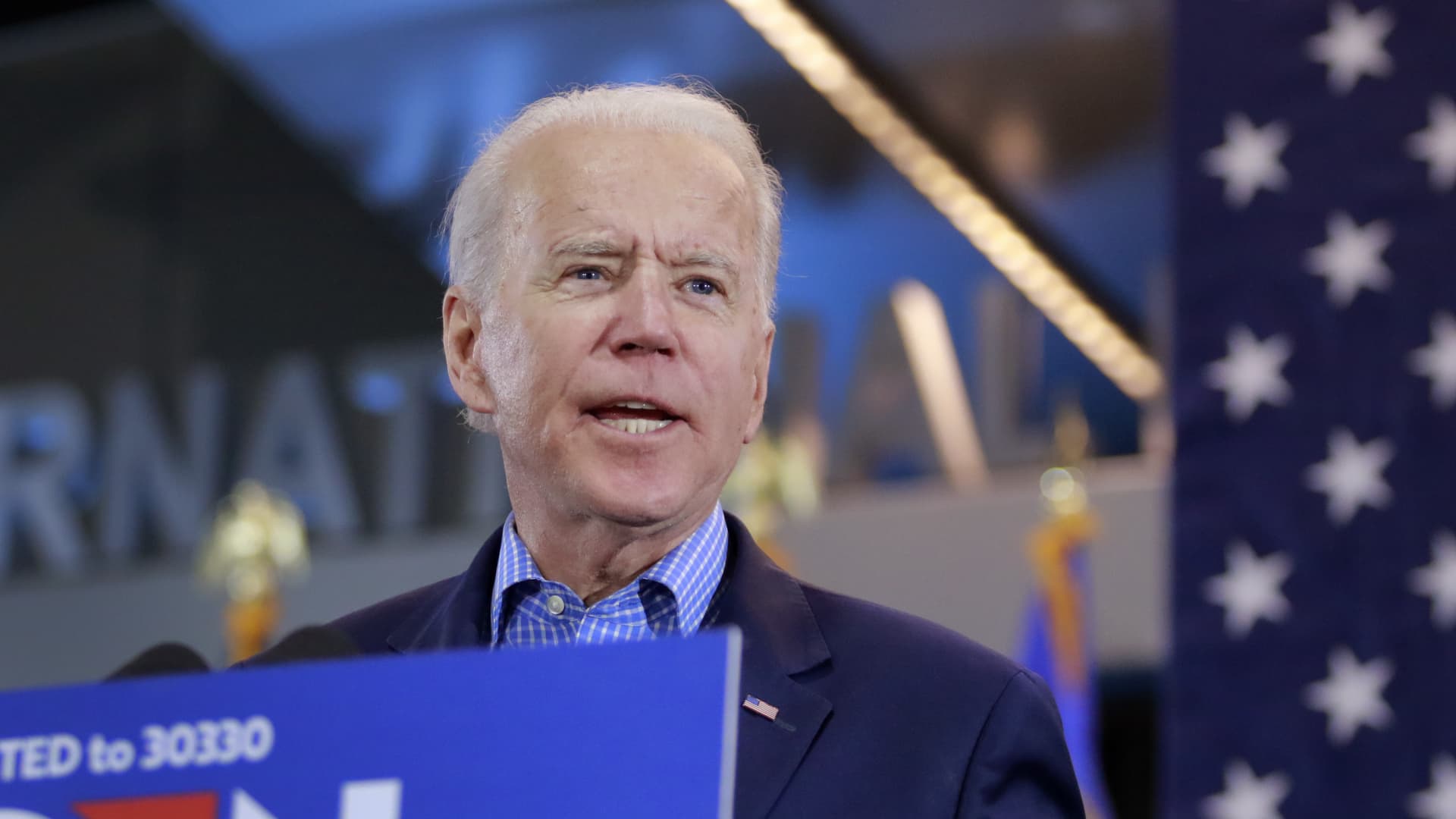
President Joe Biden in Las Vegas on Feb. 22, 2020.
RONDA CHURCHILL
President Joe Biden visited the battleground state of Nevada on Tuesday to take aim at corporate landlords, who the White House claims are keeping rents artificially high even as overall inflation has eased.
“My administration is cracking down on big corporations who break antitrust laws by price fixing to keep the rents up,” Biden said in Las Vegas. “Landlords should be competing to give folks the best deal not conspiring to charge them more.”
Biden’s attack on what he calls “rent gouging” is part of his broader election-year effort to shift the blame for stubbornly high costs of living away from the president and his economic policies, and onto corporations with outsize pricing powers.
“Folks are tired of being played for suckers and I’m tired of letting them be played for suckers,” Biden said.
As public sentiment about the economy turns more upbeat, housing remains a major pain point. The most recent consumer price index, a key measure of inflation, found that energy and shelter costs were the primary drivers of February’s 0.4% climb in consumer prices.
The cost of housing was the second-most important economic issue for respondents in a recent Financial Times/Michigan Ross survey of 1,010 registered voters, behind only inflation at large.
As a result, housing is emerging as a primary front in Biden’s war against corporate pricing power, one in which he has also gone after high drug and food prices.
Speaking in Nevada, Biden also doubled down on the housing provisions in his 2025 budget proposal and called on Congress to pass legislation to lower housing costs.
Biden won Nevada in 2020, but recent polls show him trailing presumptive Republican nominee Donald Trump in the Silver State.
Housing in Biden’s broader agenda
“This is a president who is consistently willing to take on powerful interests to reduce costs for families,” a senior administration official told reporters Monday. “This housing agenda is just one more example.”
Last week, the National Association of Realtors announced a $418 million settlement to resolve antitrust lawsuits brought by home sellers, who claimed that the industry’s longstanding commission structure amounted to collusion between the NAR and its member brokerages. In a statement, the trade group denied any wrongdoing.
“The recent settlement by the National Association of Realtors is a major step in increasing competition” in the housing market, said National Economic Council Director Lael Brainard on a Monday call with reporters.
Under the Biden administration, the Federal Trade Commission and the Department of Justice’s antitrust division have been especially aggressive in challenging big mergers in court.
It is all part of Biden’s broader battle on conglomerates and corporations that he views as overly powerful, and companies that he believes have deployed anticompetitive practices to distort the free markets.
Biden’s quest to restore what he calls a “fair, open, and competitive marketplace” has become a cornerstone of the president’s economic platform.
On the campaign trail, that often means trying to convince voters that giant companies are more responsible for average Americans’ financial pains than his policies are.
Here, the recent Financial Times poll suggested that Biden’s efforts may have started to pay off.
The share of respondents who said “large corporations taking advantage of inflation” deserved part of the blame for price increases climbed 9% from November to March, reaching 63%. The poll had a margin of error of +/-3.1%.
